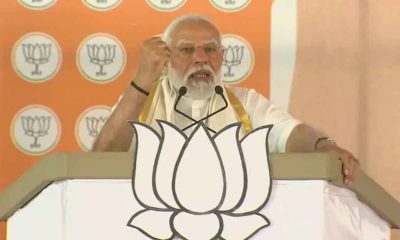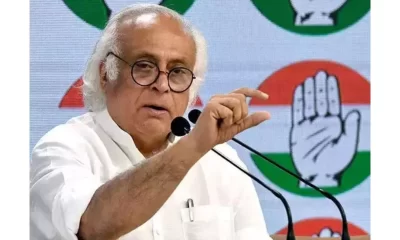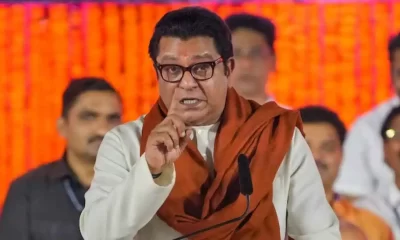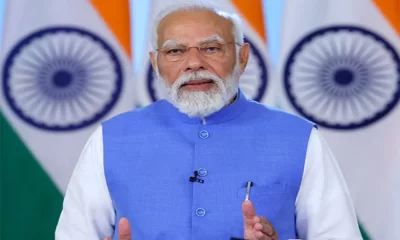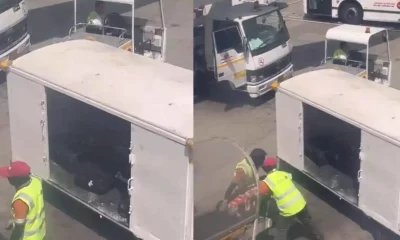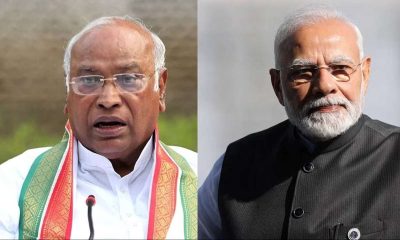Latest world news
PM Modi Meets Chinese President Xi Jinping
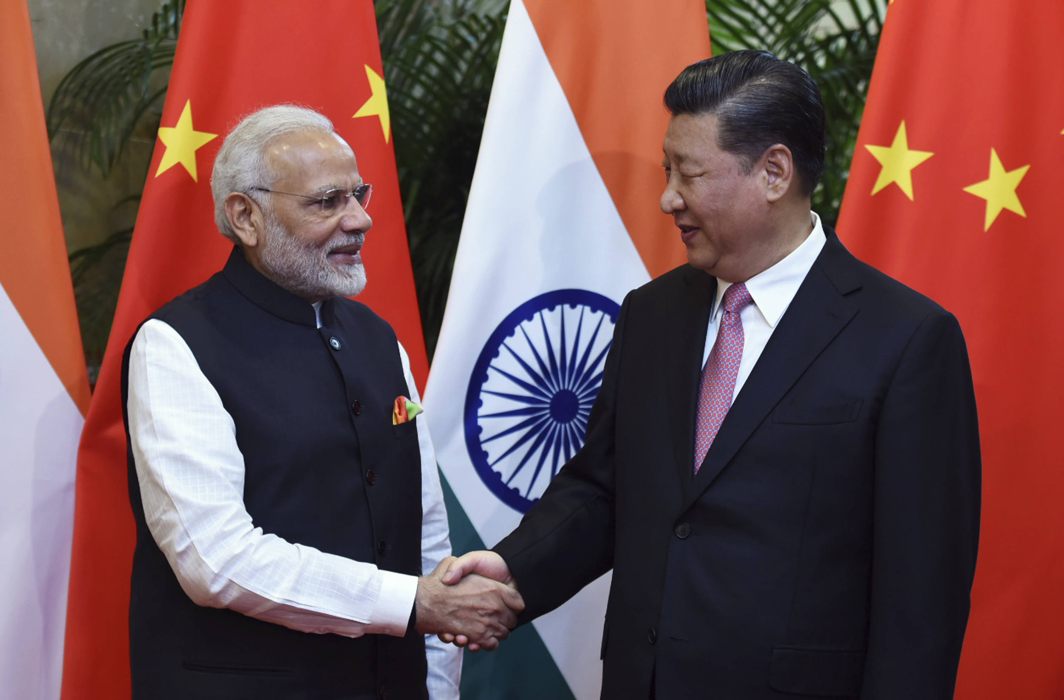
Jinping accepts invitation for informal summit in India next year
Prime Minister Narendra Modi held bilateral talks with Chinese President Xi Jinping on Saturday after he reached Qingdao in China to attend the Shanghai Cooperation Organisation or SCO summit.
Foreign secretary Vijay Gokhale has announced that Chinese side has conveyed that President Xi Jinping has accepted invitation for Wuhan-like informal summit in India in 2019. The schedule of the summit will be decided later.
During Saturday’s meeting President Xi Jinping suggested PM Modi that the two countries set up a new bilateral trade target of $100 billion by 2020, a target earlier set for 2015. However it could reach $84.44 billion last year. For facilitating trade growth India has allowed Bank of China to open its branch in Mumbai.
Gokhale has said, “There were some discussions on trade and investment issues. And in that context XI told Modi that China is looking at enhancing agricultural exports from India including non-Basmati rice and sugar”.
Read More: Modi meets Chinese President Xi Jinping in Astana
Moreover, China has agreed to share hydrological data of the Brahmaputra River in flood season with India. China had stopped sharing data after the 73-day long stand-off between Indian and Chinese troops at Dokalam last year.
Prime Minister Narendra Modi said he had detailed discussions with Chinese President Xi Jinping on bilateral and global issues which will add further vigour to the India-China friendship after their informal summit in Wuhan. They discussed a blueprint for deepening bilateral relationship and reviewed the implementation of decisions they had taken during their informal summit in Wuhan.
The meeting covered key aspects of the bilateral engagement, reflecting the resolve by the two countries to reset relations and bring back trust in their ties which was hit by the Doklam standoff and several other thorny issues.
Read More: China fails to get India’s support on Belt and Road project
China’s state news agency Xinhua quoted Xi Jinping saying that he was “willing to work with India to take the Wuhan meeting as a “new starting point” to continuously enhance political mutual trust and engage in mutually beneficial cooperation across the board, so as to push forward China-India relations in a better, faster and steadier manner.”
This is the first SCO summit since its expansion, when India and Pakistan were included as full members at the Astana summit in Kazakhstan last year.
This is PM Modi’s second visit to China this year. The two leaders meeting on Saturday took place within six weeks after their informal summit in central China’s Wuhan city during which they exchanged views on solidifying the relationship between the two countries.
Leaders of the eight Shanghai Cooperation Organisation member states and four observer states, as well as heads of international organisations are attending the summit to explore ways to bolster cooperation in the fight against terrorism, extremism and radicalisation.
Read More: G20 summit: PM Narendra Modi, Xi Jinping exchange greetings, talk on range of issues
Full members of the Shanghai Cooperation Organisation or SCO include China, India, Russia, Kazakhstan, Kyrgyzstan, Tajikistan, Uzbekistan, and Pakistan. Countries with observer status in the bloc include Afghanistan, Iran, Mongolia, and Belarus.
Read More: India must strengthen ties with China but with caution
Prime Minister Modi is expected to hold nearly half a dozen bilateral meetings with top leaders of SCO countries at the sidelines of summit. However, there is no confirmation on whether there will be any meeting with Pakistan President Mamnoon Hussain.
Ahead of the SCO summit, PM Modi had said he was “excited” to lead the Indian delegation for the grouping’s first-ever meeting with India as a full member.
He further said, “In the last one year since India became a full member of the SCO, our interaction with the organisation and its member states has grown considerably. I believe that the Qingdao Summit will further enrich the SCO agenda, while heralding a new beginning for India’s engagement with the SCO.”
Raveesh Kumar, spokesperson of Ministry of External Affairs, tweeted on Saturday morning, “With 8 members, SCO represents approximately 42 per cent of the world’s population, 22 per cent of the land area and 20 per cent of the GDP. SCO focuses on political, economic, security and cultural cooperation and enables India to engage with Central Asian countries.
Latest world news
World Earth Day 2024: Google Doodle showcases aerial view of planet’s natural beauty
Google celebrated Earth Day 2024 with a special doodle featuring an aerial view of our planet’s biodiversity.
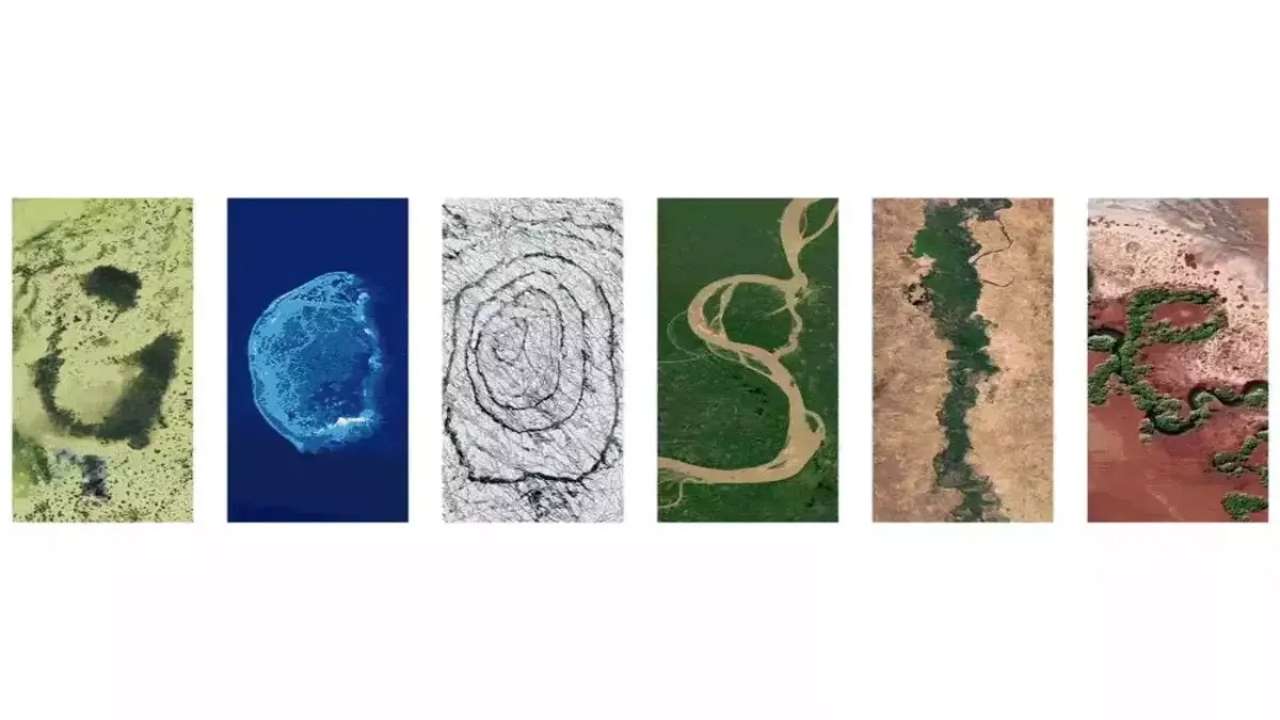
Google shared a doodle today to celebrate World Earth Day 2024, which showcased aerial photos of the planet’s biodiversity and natural beauty. Google reminded us of the importance of protecting planet earth for future generations with the help of this doodle.
The Google letters depict specific locations across the globe where people, communities, and governments work every day to help protect the planet’s natural beauty, biodiversity, and resources, according to the explanation of the annual Earth Day 2024 doodle on their website.
It said, these examples remind us that there’s much more to do to address the climate crisis and biodiversity loss, but also offer the promise of hope and optimism.
The islands of Turks and Caicos are represented by the letter “G.” The islands’ conservation efforts are concentrated on protecting important regions for biodiversity and addressing persistent environmental problems.
The largest reef in the southern Gulf of Mexico and a UNESCO biosphere reserve, Scorpion Reef National Park, is represented by the letter “O” in the Mexican flag.
The letter “O” features Iceland’s Vatnajokull National Park, which was designated as a national park in 2008 following decades of advocacy. The ecology within and surrounding the biggest glacier in Europe is safeguarded by this UNESCO World Heritage Site.
The letter “G” has the Jau National Park in Brazil on it. It is a UNESCO World Heritage Site and one of the biggest forest reserves in South America.
The Great Green Wall of Nigeria is represented by the letter “L,” and the Pilbara Islands Nature Reserves of Australia are represented by the letter “E.”
Meanwhile, Earth Day is a worldwide event that promotes protection of the environment every year. April 22 serves as a reminder of the importance of conservation efforts and sustainable practices to guarantee a healthier world and a brighter future.
The occasion inspires people across the world to come together and take action to protect the environment, strengthening our bonds with nature and promoting good change.
Latest world news
Bigg Boss 14 contestant Rahul Vaidya struggles walking in knee deep water, compares Dubai rains with Mumbai floods
Singer and TV personality Rahul Vaidya was recently stranded in the Dubai rains.

Rahul Vaidya, who was in Dubai ahead of his show which was scheduled to take place today, left the country due to heavy rains and reached Kolkata. The artist shared on social media his encounters in the UAE city, including challenges like walking through knee-deep water. Rahul provided an update regarding the heavy rainfall in Dubai on his Instagram profile.
The Bigg Boss 14 contestant revealed that he was in Kolkata and prepared to do an evening performance. Recalling the terrifying period he went through, Vaidya said there was a lot of confusion and panic in Dubai. The situation was similar to that when heavy floods hit Mumbai in 2005.
Vaiday also posted seval other images and videos of cars that were underwater and flooded roadways. The Bigg Boss 14 contestant, who shared his ordeal, claimed that even though it had just rained for two hours, the situation was dire.
In one of the video, which went viral he can be seen struggling in walking in knee-deep water. He can be also seen holding his sneakers in one hand and with other hand he was seen managing other things.
This is the result of the two hours of rain that it had, he can be heard saying in the video. Vidya also said he dosen’t believe Dubai is accustomed to a lot of rain. Everything had stopped working, he remarked.
After taking part in the first season of the singing reality show Indian Idol, Rahul Vaidya gained widespread recognition. In addition to Bigg Boss, he took part in Khatron Ke Khiladi 11.
Meanwhile, heavy rains that triggered flooding in the UAE and Bahrain, which left 18 people dead in Oman on Sunday and Monday, have paralyzed the financial hub of the Middle East, Dubai.
A lot of incoming flights were diverted from Dubai’s international airport because of the rain. At 7:26 p.m., the busiest airport in the world for foreign visitors stopped accepting new arrivals; a gradual resumption was announced for more than two hours later.
Images of planes navigating flooded tarmacs are making the rounds on social media.
According to pictures shared on social media, the flagship malls Dubai Mall and Mall of the Emirates both experienced heavy floods, while at least one Dubai Metro station had water up to the ankles.
There were several road collapses, severe flooding in residential areas, and numerous reports of leaks from windows, doors, and roofs.
Due to the unfavourable weather, schools around the United Arab Emirates were forced to close, and as more storms are predicted, the closures are anticipated to last until Wednesday. The government of Dubai allowed its staff to work remotely till this Wednesday.
Latest world news
Dubai sky turns green during storm in UAE, video goes viral
The UAE witnessed record-breaking rainfall on Tuesday and the National Centre of Meteorology recorded 254 mm of rainfall in less than 24 hrs in the Khatm Al Shakla area in Al Ain.

1 person was killed in UAE as it witnessed heavy rainfall on Tuesday, stranding commuters, flooding roads, disrupting trains and flights and resulting in water leakage from mall ceilings. The UAE witnessed record-breaking rainfall on Tuesday and the National Centre of Meteorology recorded 254 mm of rainfall in less than 24 hrs in the Khatm Al Shakla area in Al Ain. It is being said that the rainfall was the highest documented since the start of data collection in 1949.
The heavy rainfall in UAE came days after a similar situation in neighbouring Oman, where 13 people were killed in flash floods. Many parts of Oman saw torrential rains, which caused students to be trapped in buses and swept away motorists and trapped people in their homes.
Videos from Dubai circulating on social media showed widespread waterlogging on roads in Abu Dhabi, Dubai and other important cities. This left daily commuters in cars and other vehicles struggling to get back home. Dubai metro station too was seen flooded and closed.
One such video circulating on social media shows the aerial view of the city of Dubai from the top of a building. In the video the stormy winds are seen blowing over the city of Dubai. As the storm intensifies the Dubai sky turns green and ultimately gets covered by heavy rainfall. The video has gone viral on social media with more than 1.1 million views.
Another video showed water leakage from the ceilings of shopping malls, flooding the floors and destroying goods. A video which was shot in the famous Mall of the Emirates, showed pieces of ceiling falling as the rainwater gushed inside. Videos from many outlets of the Deira City Centre mall chain showed escalators being rendered unusable. Majid Al Futtaim, the company which owns the Mall of Emirates, said that the shopping complexes have been kept open and the customers are being sent away from the flooded areas.
-

 India News20 hours ago
India News20 hours agoLandslide hits Arunachal Pradesh, highway linking Indo-China border affected
-

 Entertainment20 hours ago
Entertainment20 hours agoBollywood stars Salman Khan, Alia Bhatt, Rekha, Sonakshi Sinha, Aditi Rao Hydari attend Sanjay Leela Bhansali’s Heeramandi premiere
-
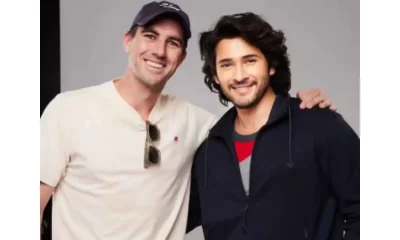
 Cricket news14 hours ago
Cricket news14 hours agoTelugu superstar Mahesh Babu meets SRH captain Pat Cummins, says it is an absolute honour
-
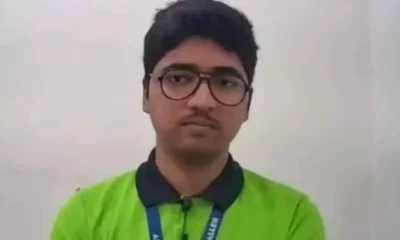
 Education18 hours ago
Education18 hours agoFarmer’s son Nilkrishna Gajare Nirmalkumar from Maharashtra scores 100 NTA score in IIT-JEE Mains 2024
-

 India News21 hours ago
India News21 hours agoTamannaah Bhatia summoned in illegal IPL streaming app case, to appear before cyber cell on April 29
-

 Cricket news21 hours ago
Cricket news21 hours agoIPL 2024: Rishabh Pant, Axar Patel score half centuries as Delhi Capitals beat Gujarat Titans by 4 runs
-
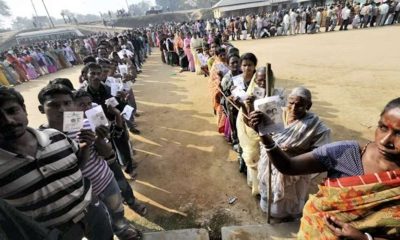
 2024 Lok Sabha Elections19 hours ago
2024 Lok Sabha Elections19 hours agoBihar: Election Commission extends voting timings for 4 Lok Sabha seats due to heatwave
-

 Entertainment16 hours ago
Entertainment16 hours agoAamir Khan to begin shooting in Delhi for Sitaare Zameen Par next month



